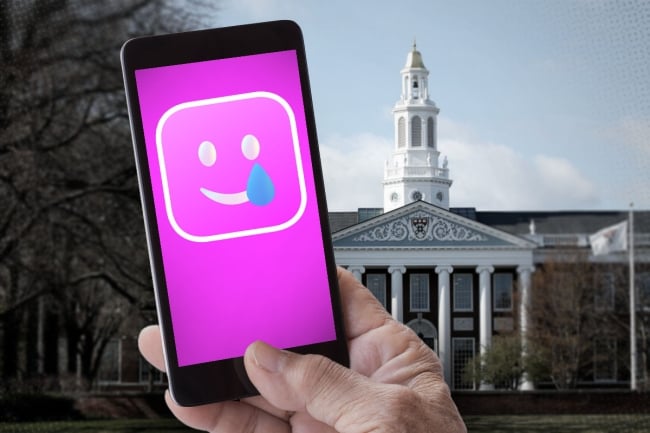You have /5 articles left.
Sign up for a free account or log in.

Harvard officials asked social media app Sidechat to up its moderation following reports of anonymous antisemitic posts.
Harvard University has asked the leaders of a social media app that allows anonymous posting to tamp down on “concerning content” following student complaints of antisemitic messages.
University officials met with the app Sidechat’s team this month, asking them to do more to monitor and moderate content, Harvard said in a statement to Inside Higher Ed. Sidechat assured Harvard that it will monitor posts to ensure they follow its terms of use and community guidelines.
The move comes only weeks after Harvard president Claudine Gay resigned in the wake of a U.S. House of Representatives hearing on antisemitism in higher education.
Sidechat has played a role in the recent tensions over antisemitism at Harvard. In a Jan. 9 letter, Virginia Foxx, Republican chairwoman of the House Education and Workforce Committee, pointed out Sidechat’s potentially problematic posts. She requested that Harvard produce posts “by Harvard students, faculty, staff, and other Harvard affiliates on Sidechat and other social media platforms targeting Jews, Israelis, Israel, Zionists, or Zionism.”
Sidechat co-founder Sebastian Gil said in an email that Harvard is the only university to ask the app to increase its moderation. He said his company does “more than most (if not all) social media apps in moderation,” pointing to a moderation team of 30 employees and the company’s use of machine learning models to “detect bigotry.”
“We also welcome feedback from the community on times we might not have gotten it right,” Gil said. “We investigate every report of mis-moderation that is reported to us via email, reported in the app, or we see shared on social media. We recognize these are difficult times on campuses and we’re committed to ensuring Sidechat remains a safe environment for students.”
Sidechat, which launched in early 2022, allows users to log in with their student email addresses and anonymously add posts, which can receive up or down votes. The app’s guidelines span 16 points that explicitly ban content that is unlawful, threatening, abusive, harassing, defamatory or libelous.
Sidechat accidentally let people who were not current students on the platform in May 2023, spurring complaints, according to student paper The Harvard Crimson. Gil said Sidechat has since assured Harvard officials that app membership will be limited to current students.
College campuses across the country have seen a rise in reports of antisemitism related to the war between Israel and Hamas, which broke out when Hamas attacked Israel on Oct. 7. Many college leaders, including Harvard’s former president, have been widely criticized for their responses to the campus incidents.
As part of its effort to address the problematic Sidechat content, Harvard forwarded samples of the reported posts to its police department to determine if they require law enforcement action, the university said. Going forward, the university’s Information Security and Data Privacy Office will send reports directly to Sidechat’s leadership.
This is not the first time an anonymous-posting app caused strife on campus. YikYak, an app similar to Sidechat, debuted in 2013 before shutting down four years later due to concerns about bullying and racist threats. That app returned in 2022—a month after Sidechat launched—before being acquired by Sidechat in March 2023 for an undisclosed amount.





